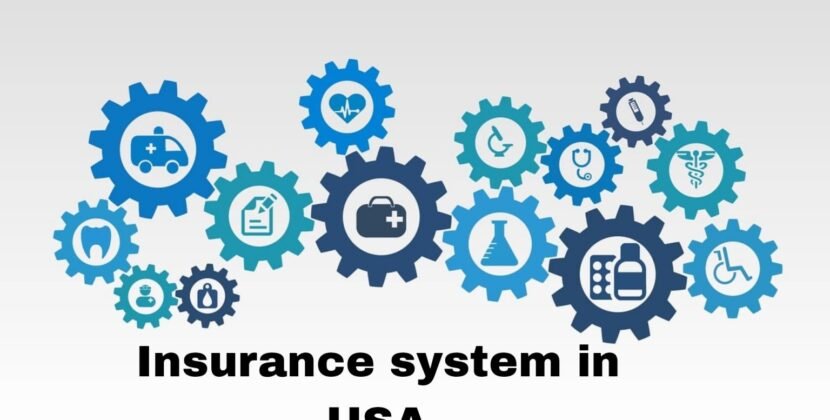The healthcare industry is undergoing a significant transformation driven by technological advancements, innovative treatments, and changing patient expectations. These developments promise to improve patient outcomes, enhance the efficiency of healthcare delivery, and make medical care more accessible. As we look to the future, several key innovations and trends are poised to shape the landscape of healthcare. This guide will explore The Future of Healthcare: Innovations and Trends to Watch Lyricsbaazaar.com.
Telemedicine and Remote Care
Expansion of Telehealth Services
Telemedicine has seen exponential growth, especially in the wake of the COVID-19 pandemic. It allows patients to consult with healthcare providers from the comfort of their homes, reducing the need for in-person visits. Telehealth services are expected to continue expanding, offering more comprehensive care options, including remote monitoring and virtual follow-ups.
Benefits of Remote Care
Remote care can significantly improve access to healthcare, particularly for individuals in rural or underserved areas. It also reduces the strain on healthcare facilities, allowing for more efficient use of resources. Patients benefit from the convenience and flexibility of telemedicine, which can lead to better adherence to treatment plans and improved health outcomes.
Artificial Intelligence and Machine Learning
AI in Diagnostics
Artificial intelligence (AI) and machine learning (ML) are revolutionizing diagnostics. AI algorithms can analyze medical images, lab results, and patient data with remarkable accuracy, aiding in early detection of diseases such as cancer, heart disease, and neurological disorders. These technologies can augment the capabilities of healthcare providers, leading to more precise and timely diagnoses.
Predictive Analytics
Predictive analytics powered by AI can identify patterns and trends in patient data, allowing for proactive intervention and personalized treatment plans. For example, AI can predict patient readmissions, helping healthcare providers to implement preventive measures. This can enhance patient outcomes and reduce healthcare costs.
Personalized Medicine
Genomics and Precision Health
Advances in genomics are paving the way for personalized medicine, where treatments are tailored to an individual’s genetic makeup. This approach allows for more effective and targeted therapies, particularly in areas like oncology, where precision medicine is transforming cancer treatment. Genetic testing can identify specific mutations and guide the selection of therapies that are most likely to be effective.
Pharmacogenomics
Pharmacogenomics, the study of how genes affect a person’s response to drugs, is another promising field. By understanding genetic variations, healthcare providers can prescribe medications that are more likely to be effective and have fewer side effects. This personalized approach can improve treatment outcomes and enhance patient safety.
Wearable Technology and Health Monitoring
Advancements in Wearables
Wearable technology, such as fitness trackers, smartwatches, and medical devices, is becoming increasingly sophisticated. These devices can monitor vital signs, track physical activity, and detect abnormalities in real time. Wearables empower patients to take an active role in managing their health and provide valuable data to healthcare providers.
Continuous Monitoring
Continuous health monitoring through wearables can lead to early detection of health issues and timely intervention. For example, devices that monitor heart rate and rhythm can alert users and healthcare providers to potential cardiac events. This proactive approach can prevent serious health problems and improve long-term outcomes.
Robotics and Automation
Robotic Surgery
Robotic-assisted surgery is becoming more common, offering precision and minimally invasive options for patients. Robotic systems can perform complex procedures with greater accuracy, reducing recovery times and minimizing complications. Surgeons can operate with enhanced dexterity and control, leading to better surgical outcomes.
Automation in Healthcare
Automation is streamlining administrative and clinical workflows, improving efficiency and reducing the burden on healthcare staff. Automated systems can handle tasks such as appointment scheduling, billing, and inventory management, allowing healthcare providers to focus more on patient care. This increased efficiency can lead to better resource allocation and cost savings.
Blockchain and Data Security
Securing Patient Data
Blockchain technology offers a secure and transparent way to manage patient data. It ensures data integrity and privacy, making it difficult for unauthorized parties to alter or access sensitive information. Blockchain can enhance trust between patients and healthcare providers by providing a secure platform for storing and sharing medical records.
Interoperability
Blockchain can also improve interoperability among different healthcare systems. It allows for seamless sharing of patient data across various platforms, ensuring that healthcare providers have access to comprehensive and accurate patient information. This can lead to more coordinated and effective care.
Regenerative Medicine and Bioprinting
Stem Cell Therapy
Regenerative medicine, including stem cell therapy, holds great promise for treating a wide range of conditions. Stem cells have the potential to repair or replace damaged tissues and organs, offering hope for patients with chronic illnesses or injuries. Ongoing research is expanding the applications of stem cell therapy, bringing new treatments to the forefront.
3D Bioprinting
3D bioprinting is an emerging technology that can create complex tissue structures using living cells. This technology has the potential to revolutionize organ transplantation by producing custom-made organs that are compatible with the recipient’s body. Bioprinting can also be used to create tissue models for research and drug testing, accelerating the development of new therapies.
Mental Health Innovations
Digital Mental Health Solutions
The importance of mental health is gaining recognition, and digital solutions are playing a key role in providing care. Apps and online platforms offer therapy, counseling, and support for mental health conditions. These digital tools increase access to mental health services, particularly for individuals who may face barriers to traditional care.
AI and Mental Health
AI is being used to develop tools that can assess mental health conditions and provide personalized interventions. For example, AI-powered chatbots can offer cognitive-behavioral therapy (CBT) techniques and monitor mood changes. These tools can complement traditional therapy and provide ongoing support for individuals managing mental health conditions.
Sustainability in Healthcare
Eco-Friendly Practices
The healthcare industry is increasingly focusing on sustainability and reducing its environmental impact. Hospitals and clinics are adopting eco-friendly practices, such as energy-efficient buildings, waste reduction programs, and sustainable sourcing of medical supplies. These initiatives not only benefit the environment but also improve the overall health and well-being of communities.
Green Healthcare Technologies
Innovations in green healthcare technologies are making it possible to provide care in a more sustainable way. For example, telemedicine reduces the need for travel, lowering carbon emissions. Solar-powered medical devices and equipment are also being developed to support healthcare delivery in remote and resource-limited settings.
Conclusion on The Future of Healthcare: Innovations and Trends to Watch Lyricsbaazaar.com
The study conducted by Lyricsbaazaar.com show The future of healthcare is bright, with numerous innovations and trends set to transform the industry. From telemedicine and AI to personalized medicine and regenerative therapies, these advancements promise to improve patient outcomes, increase efficiency, and make healthcare more accessible. As we move forward, embracing these innovations and addressing the challenges they present will be crucial for building a healthcare system that is responsive, resilient, and sustainable. By staying informed and adapting to these changes, healthcare providers, patients, and policymakers can work together to create a healthier future for all.













